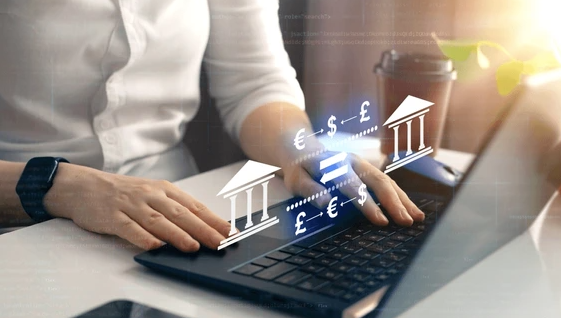What Is Exchange Rate in Economics?
An exchange rate is the price of one country’s currency in terms of another. For example, if the EUR/USD exchange rate is 1.10, it means 1 Euro is worth 1.10 U.S. dollars.
Exchange rates are essential in global trade and finance. They affect how much consumers pay for imported goods, how competitive exporters are, and how investors allocate capital across countries.

What Happens When Exchange Rate Increase?
When the exchange rate increases, the domestic currency appreciates. This makes imports cheaper, reduces inflation, but makes exports less competitive. Tourism may decline, foreign debt becomes easier to repay, and capital inflows often rise due to stronger investor confidence in the local economy.
This can bring both positive and negative consequences:
Imports Become Cheaper
A stronger domestic currency lowers the cost of importing goods and services. For businesses and consumers, this translates to:
- Lower input costs for manufacturers
- Reduced consumer prices on foreign goods
- A downward pressure on inflation
This is especially important for countries reliant on imported oil, food, or capital goods.
Exports Become Less Competitive
An appreciating currency makes locally produced goods more expensive for foreign buyers. As a result:
- Exporters may lose market share
- Trade surplus may shrink or become a deficit
- Export-driven industries may slow down
For example, Japan’s exporters often suffer when the yen strengthens, impacting companies like Toyota and Sony.
Tourism and Services Get Impacted
A higher exchange rate can hurt the tourism sector. Foreign visitors may find it more expensive to travel to the country, while domestic tourists may travel abroad more due to stronger purchasing power.
Capital Inflows May Rise
A rising exchange rate often reflects foreign investment inflows. Investors are attracted to stronger currencies, especially if interest rates are high or the country is perceived as a safe haven.
Example: During global uncertainty, the U.S. dollar often strengthens due to its safe-haven status, attracting capital into U.S. bonds and equities.
Debt Denominated in Foreign Currency Becomes Cheaper
For countries or companies with external debt in foreign currency, a stronger domestic currency reduces the cost of servicing that debt.
However, this only applies if the exchange rate increase is stable and not driven by speculation or abrupt policy shifts.

How Are Exchange Rates Determined?
Exchange rates can be floating or fixed. In a floating exchange rate system, currency values fluctuate based on supply and demand in the foreign exchange (forex) market. Factors influencing this include:
- Interest rate differentials
- Inflation rates
- Trade balances
- Central bank policies
- Geopolitical stability
For instance, higher interest rates in the U.S. typically attract foreign investors, strengthening the U.S. dollar.
In contrast, countries like Saudi Arabia or Hong Kong use fixed or pegged exchange rate regimes, where the currency is tied to another (usually the U.S. dollar) and maintained within a narrow band through interventions.
Exchange Rate Example: USD/JPY
Let’s look at a practical forex example:
- In 2022, the USD/JPY moved from 115 to 150, a sharp depreciation of the Japanese yen.
- Japanese imports became more expensive, contributing to inflation.
- Japanese exporters, however, benefited as their goods became cheaper in global markets.
- The Bank of Japan intervened to stabilize the yen, highlighting how exchange rate changes trigger policy responses.

Types of Exchange Rate Systems
Understanding the types of exchange rate systems helps interpret market behavior:
| Type | Description |
| Floating | Market-driven, adjusts based on demand/supply (e.g., USD, EUR, GBP) |
| Fixed | Pegged to another currency (e.g., SAR to USD) |
| Managed float | Central bank intervenes occasionally (e.g., INR, MYR) |
Each system has different implications for volatility, inflation control, and monetary policy.
Importance of Exchange Rate in the Economy
The importance of exchange rate extends across:
- Trade competitiveness
- Inflation control
- Foreign reserves management
- Attracting foreign investments
- Debt sustainability
A stable and predictable exchange rate supports economic growth and investor confidence. However, excessive volatility can lead to uncertainty, reduced capital flows, and loss of purchasing power.
Conclusion
Traders view exchange rate shifts as opportunities or risks. A rising exchange rate signals currency strength, but its impact depends on economic context.
- Short-term traders may capitalize on momentum.
- Exporters/importers must hedge exposure.
- Central banks evaluate when to intervene to maintain macroeconomic stability.
Monitoring exchange rates is crucial for making informed trading, investment, and policy decisions.
At Ultima Markets, we provide real-time analysis, trading tools, and expert insights to help you stay ahead of currency movements. Whether you’re hedging exposure or trading major FX pairs, our platform empowers smarter decisions in a volatile global economy.
Disclaimer: This content is provided for informational purposes only and does not constitute, and should not be construed as, financial, investment, or other professional advice. No statement or opinion contained here in should be considered a recommendation by Ultima Markets or the author regarding any specific investment product, strategy, or transaction. Readers are advised not to rely solely on this material when making investment decisions and should seek independent advice where appropriate.
























